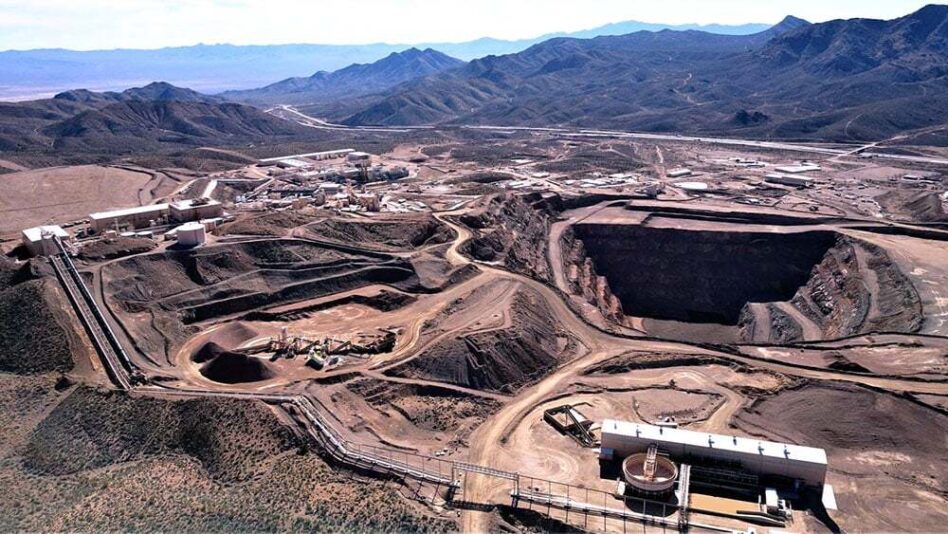Well, it seems the Pentagon is taking the matter of rare earths into its own hands.
Yesterday, the DoD announced it’s buying $400M of convertible preferred shares in Las Vegas-based rare earths mining company MP Materials, making it the company’s largest stakeholder with a 15% stake. The DoD will also issue MP a $150M loan to expand its rare earth separation facility at Mountain Pass, California.
The “public-private partnership” between the firm and the DoD is set to last ten years, and aims to supercharge domestic rare earths production and reduce dependency on China.
“This initiative marks a decisive action by the Trump administration to accelerate American supply chain independence,” MP Materials Founder, Chairman, and CEO James Litinsky said in a statement.
JP Morgan and Goldman Sachs have also committed $1B to help fund the company’s build-out. Shares in the company rose over 50% at the news, and its market cap increased by about $2.5B to $7.4B.
Dig deep: Rare earths have been a pretty hot topic lately. In case you slacked off in high school chemistry, these are a group of 17 chemically similar elements with a host of snazzy magnetic, luminescent, and electrochemical properties used for everything from smartphones to fighter jets.
The most important ones for defense purposes are:
- Neodymium (Nd) & praseodymium (Pr), which are used to make the high-strength permanent magnets in everything from missile systems, to UAV motors, to radars.
- Dysprosium (Dy) & terbium (Tb), which add heat resistance and durability to magnets being used in super-extreme conditions, like on an F-35.
- Yttrium (Y), which is used in night vision, targeting lasers, and thermal shielding.
The problem is, China has a pretty firm chokehold on the world’s supply of these materials. Overall, the country:
- Produces about 60-70% of the world’s rare earth ores
- Controls about 90% of the world’s rare earth refining and processing capacity
- Makes about 90% of the world’s permanent magnets
- Is the source for over 70% of US rare earth imports
Of the defense-y ones, more than 90% of neodymium and praseodymium and nearly all dysprosium, terbium, and yttrium come from China. Put simply: as things stand, if Beijing decided to cut us off one day (say, if we decided to help protect a certain little island), we’d be screwed.
Mine, all mine: That’s where MP Materials comes in. The Mountain Pass open-pit rare earths mine contains one of the richest deposits of these minerals in the world, according to the company, and is the only mine of its scale in the Western Hemisphere.
Plus, it’s got its very own separation and refining facility, which keeps the whole production process inside the US. And things ain’t going too badly: The company says it already produces about 10% of the world’s rare earth supply. (But those are rookie numbers compared to China.)
Go big or go home: With the massive influx of cash, MP says it will build a second magnet manufacturing plant called the “10X Facility” in a yet-to-be-determined location (the first is in Texas). Once completed, the company says total US rare earth magnet manufacturing capacity will reach 10,000 metric tons. (For the record, a single Chinese facility in Ganzhou produced an estimated 25,000 metric tons last year.)
It will also expand its refining and separating facilities in Mountain Pass. That’s the really tricky part of the rare earths process.
The deal also comes with a few sweet deals for MP:
- The DoD has entered into a 10-year agreement with the company that includes a $110/kilo price floor for all neodymium-praseodymium (NdPr) products. That includes all of those snazzy permanent magnets.
- For the first ten years after the 10X facility is built, the DoD has promised that 100% of the magnets produced there will be purchased by defense and commercial customers “with shared upside.”
Thou doth protest: Despite this all sounding a whole lot like nationalization of his company, Litinsky insists it’s really, really not. “We remain a thriving public company,” he said on CNBC, “We now have a great new partner in our economically largest shareholder, DoD, but we still control our company. We control our destiny. We’re shareholder driven.”
Now, let’s see if adopting some of their business practices actually helps us catch up with the Chinese.

